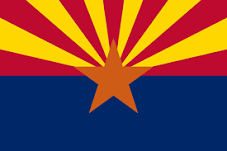Medical Marijuana Card Arizona
 While obtaining your Arizona medical marijuana card isn’t difficult, it is a time-consuming process. The first step is visiting your doctor to see if you qualify for the card. Even if you do, you’ll be required to go through a verification process that requires submitting documents and waiting to hear back about the final determination. As you might guess, these means you’ll have to patiently jump through the legal hoops, before you finally receive your card.
While obtaining your Arizona medical marijuana card isn’t difficult, it is a time-consuming process. The first step is visiting your doctor to see if you qualify for the card. Even if you do, you’ll be required to go through a verification process that requires submitting documents and waiting to hear back about the final determination. As you might guess, these means you’ll have to patiently jump through the legal hoops, before you finally receive your card.The medical marijuana home page, which is accessible through the ADHS main site, lists the requirements for qualifying for the card. If you’re unsure that you’ll qualify, you should consult this list. The site also provides answers to a list of frequently asked questions. One more resource the ADHS website provides is a patient checklist. It’s recommended that you print this out to keep with you as a quick reference guide.
How Can I Qualify for a Medical Marijuana Card?
Before you begin the process, ensure you have the documents to prove you’re an Arizona resident, because you will be asked to prove it. Additionally, you must have been diagnosed with specific medical conditions. These illnesses are listed below:
- Cancer
- Glaucoma
- Human Immunodeficiency Virus (HIV)
- Hepatitis C
- Acquired Immune Deficiency Syndrome (AIDS)
- Amyotrophic Lateral Sclerosis (ALS)
- Crohn’s Disease
- Agitation of Alzheimer’s disease
Additionally, you can qualify for the card, if you have certain other medical conditions. These conditions must be defined as chronic or debilitating. The disease, or its prescribed treatment, must cause the following symptoms or side effects:
- Cachexia or wasting syndrome
- Chronic, severe pain
- Severe nausea
- Seizures, which may be caused by epilepsy
- frequent or severe muscle spasms, which includes those caused by MS, or multiple sclerosis
Getting Started with Your Doctor Consultation
While the law requires you to consult a licensed physician, you can consult a number of different types of doctors in Arizona. Allopathic (MD), homeopathic [MD(H) or DO(H)], osteopathic (DO), and naturopathic [NMD or ND] caregivers are all recognized as having the qualifications for authorizing medical marijuana cards for their patients. You will need to establish a physician-patient with the caregiver.
You must have also been diagnosed with the qualifying medical condition within one calendar year. If you believe you do have one of the previously mentioned conditions, but have not yet been diagnosed, you should see your caregiver. He can provide the necessary medical evaluation and diagnosis.
You may run into some resistance from your normal doctor, since many general practitioners are uncomfortable discussing medical marijuana usage. If your normal doctor is reluctant, you can go to another licensed practitioner. There are many in Arizona, who feel more comfortable providing diagnoses and recommendations for medical marijuana cards.
You Do Not Need a New Diagnosis
Suppose you’ve recently been diagnosed with one of the aforementioned conditions, but your doctor won’t certify you for the medical marijuana card. You will have to go to a different doctor to receive that certification, but that doesn’t mean you will need a new diagnosis. The ADHS website specifically states that the certification doesn’t have to come from the same doctor, who provided the initial diagnosis. This benefits patients, when their primary doctors are reluctant to endorse medical marijuana usage.
When you see that second doctor, however, he will have to confirm the diagnosis. He will also have to determine if marijuana usage will benefit your condition, or help alleviate symptoms of the illness. Once the second caregiver establishes these factors, he may approve certification.
Your Medical Records Play an Important Role
When you do need to consult a second doctor, a full exam isn’t usually necessary to confirm the diagnosis of your medical condition. The caregiver can simply review your medical records for the evidence he needs to support the diagnosis. This doesn’t mean you will have to carry a copy of your records around with you, but you should make sure to grant that second caregiver access to them.
If you’re uncomfortable with letting your doctor know you’re seeking a second opinion for the purpose of maintaining a medical marijuana card, there are ways to conceal your intent. Before you bring up your interest in obtaining the card, request a copy of your medical records. You don’t really need to supply a reason, since your doctor must provide your records in accordance with federal law. According to the stipulations in the HIPPAA (Health Insurance Portability and Accountability Act of 1996) law, your doctor has 30 days to comply with your request.
Applying for Your Card
When you’re ready to file your application for your medical marijuana card, you will need to supply the following documents:
Arizona Photo ID – This can be a passport, an Arizona driver’s license, or an Arizona identification card. It must have been issued after 1996, so, if the ID is soon to expire, it may be wise to renew it ahead of time. Since the ID must be submitted online, you will need a digital copy. This simply means taking a photo of the front and back of the card with your smartphone.
Method of Payment – You’ll also need a valid credit card, debit card, or prepaid card. ADHS charges a $150 application fee, which is due at the time the application is submitted.
Photograph – ADHS establishes specific requirements for submitting your digital photo.
It must be 2×2 inches, or it can be 600×600 pixels up to 1200×1200 pixels. It must also comply with passport photo regulations, meaning you cannot be wearing a hat, or other headgear, and you must be in front of a white background.
Minors and Convicted Felons
For minors, or those under 18 years of age, the ADHS website outlines special criteria for obtaining the card. If you’re an adult and have criminal convictions, you can still qualify for the card. Only dispensary agents and accredited caregivers are subject to background checks.
What Fees Are Required?
As previously mentioned, ADHS does require a one-time application fee of $150. However, Supplemental Nutrition Assistance Program participants can qualify for a $75 discount. To obtain the discount, you must present either your SNAP card with your name on it, or your SNAP qualifying letter. Tucson may have different medical marijuana fees than Phoenix
Physicians charge a processing fee of up to $300, but ask your caregiver ahead of time to be sure. Many doctors will discount that fee for military veterans. If you’re unable to leave your home, many physicians will make house calls to help you through the application process.
Receiving Your Card
From the time your application has been submitted, the approval process can take from three to five business days up to two weeks. Once approval has been granted by ADHS, it may take up to 10 business days to receive your card in the mail. The card is only good for one year and a $150 fee is required for each renewal. In order to avoid a lapse, you should begin the renewal process 30 days, before the card’s expiration date.
Out of State Visitors
If you’re visiting from out of state and have a medical marijuana card issued by your home state, you may still legally possess and use marijuana in Arizona. However, you won’t be able to purchase marijuana from a dispensary, because dispensary agents must verify certification via the ADHS system.


